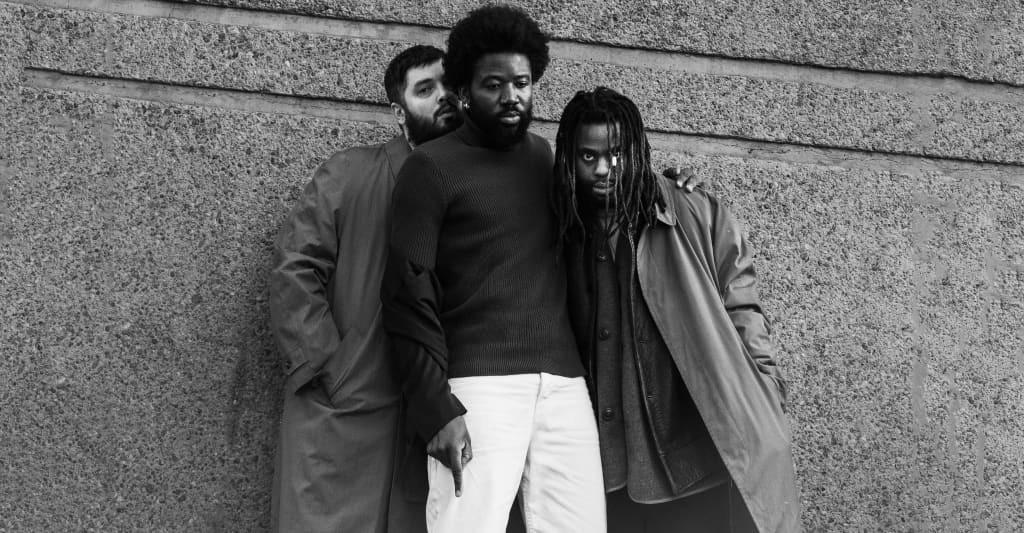#‘Black Twitter: A People’s History’ Review: Hulu Docuseries Is a Compelling Primer on a Social Media Movement
Table of Contents
When “A People’s History of Black Twitter” was published in 2021, the social media platform appeared powerful as ever. As it had been for over a decade, the site was a hub of community and influence, where users might go to bullshit with friends, to organize with activists, to read and report news in real time, maybe even to mingle with a celebrity or two. Sure, it had its problems with trolls or bots or poor moderation; sure, TikTok was already moving in fast. But Twitter seemed to be, if not thriving, at least chugging along with no obvious end in sight.
A lot can change in three years, however — and a lot has, particularly since Elon Musk’s acquisition of the site in 2022. Onyx Collective‘s Black Twitter: A People’s History reiterates and expands on Jason Parham’s Wired article, braiding together interviews with journalists, comedians and other commentators to outline the rise of a revolution and its lasting effect. But from the vantage of 2024, the series takes on a more reflective tenor — a look back at a time recently passed, rather than an effort to document a story still unfolding.
Black Twitter: A People’s History
The Bottom Line
A thoughtfully crafted record of a phenomenon.
Airdate: Thursday, May 9 (Hulu)
Directed by: Prentice Penny, based on the article by Jason Parham
While Black users have been on Twitter as long as Twitter has existed, both Parham and Black Twitter director Prentice Penny (Insecure) pin the start of Black Twitter as a distinct phenomenon to around 2009, with Ashley Weatherspoon’s #UKnowUrBlackWhen as one of its first uniting viral moments. From there, the documentary traces a path loosely organized by chronology and theme.
The first episode focuses on the early days of the community and its lighter side — the jokes, the watch parties, the celebrity spats, the dishy threads (who could forget Zola?). The second charts the evolution of Black Twitter into a tool for real-world change, via movements like Black Lives Matter and #OscarsSoWhite. The third encompasses Twitter’s last gasp of relevance during the COVID-19 pandemic, and its subsequent slide into Musk’s shabbier, seamier X. Throughout, the show thoughtfully positions its subject within a larger cultural context, underlining connections between civil rights marches and Black Lives Matter protests or drawing parallels between white flight and the departure of white people from the “ghetto” of MySpace to the gated community of Facebook.
With so much ground to cover, Black Twitter can only skim the surface of all the complex, interconnected ideas within it. There’s just not enough time in three hours for a thorough unpacking of the history suggested by a statement like “I think Black people figured out a long time ago that sometimes people can’t hear us when we’re being desperate and when we’re being earnest, but they can hear us if we inflect our truths with humor and comedy,” from journalist Wesley Lowery. Or to fully map out the mechanics by which queer Black vernacular becomes coopted into generic internet slang, as pointed out by Jamelle Dooley, a participant in one of the occasional group “kickback” segments.
Anyone wanting to dig further into those rabbit holes will have to do their own research; by the time you’ve formulated further questions, the show has already barreled ahead to the next topic. But if Black Twitter isn’t much for deep dives, it’s effective as a primer for anyone still trying to wrap their minds around the sheer breadth of its central topic — which, this soon after the golden age of Black Twitter, is probably most people.
Penny even embeds the experience of the platform into the series itself, with a rhythm and a visual style that evoke the endless scroll. The points made by its interviewees are illustrated in video memes, clips, 140-character quips, and punctuated by gifs of Kombucha Girl or Supa Hot Fire. One-on-one interviews are conducted in sets dressed to evoke a barbershop or an airport or a campaign office — which, besides adding visual interest to the otherwise familiar talking-head format, serve to remind us that Black Twitter is wherever Black people are.
Penny takes pains to emphasize that the community it chronicles is not a monolith. Its subjects rattle off a dizzying array of subcategories, from HBCU Twitter to NBA Twitter to Blackademic Twitter, and so forth. And it is aware that those various cliques do not always mesh. The third chapter touches on issues of queerphobia and misogynoir within Black Twitter, though as usual the series moves on before it can fully interrogate these thorny topics.
Nevertheless, it finds within this messy collective a common narrative thread. It runs from the platform’s early appeal into what author Luvvie Ajayi Jones describes as “a megaphone for people who are on the margins,” where Black people could go to call for justice, live-tweet a favorite drama, or simply be themselves — and then twists eventually into an instrument for the backlash, led by reactionaries like Donald Trump or Musk who saw the site for the power base it had become. (Black Twitter rightfully roasts Musk’s bigoted views, but its most hilariously savage critique is also its simplest: “He’s just not cool,” scoffs former Twitter exec God-is Rivera.)
Penny, like Parham, seems to have the long view in mind in recording an era as it happens so it is not forgotten after it dissipates. It’s essential work, especially considering that social media is ephemeral almost by nature: Writer Ira Madison III mentions at one point the mid-2010s rash of “quite-unquote ‘articles’ that were lifting things straight from Black Twitter,” but dig up any of those tweet roundups now and you’re likely to be met by broken links and failed embeds.
If posts aren’t forever, though, the impact they have can be. “Black Twitter really was the foundational bedrock of the evolution of social influence as we see it now: the way that we joke, the way that we roast, the way that we push for accountability on the internet in general,” says Rivera, and the docuseries makes a persuasive case that she’s right. Black Twitter might be too broad, too brief, too early to serve as the definitive account of this movement. But it’s a compelling first chapter in what’s sure to be a long and lively conversation.
If you liked the article, do not forget to share it with your friends. Follow us on Google News too, click on the star and choose us from your favorites.
If you want to read more Like this articles, you can visit our Social Media category.




